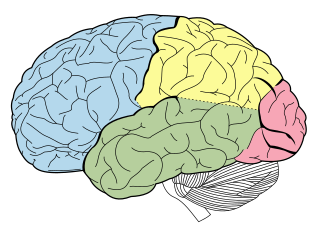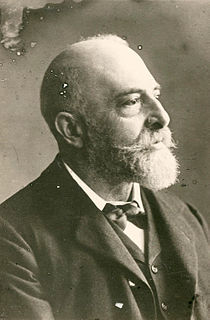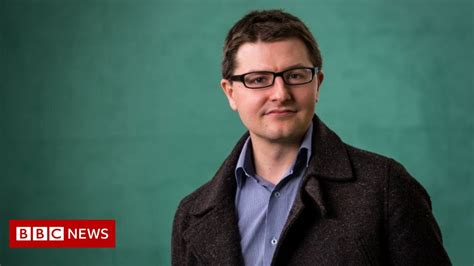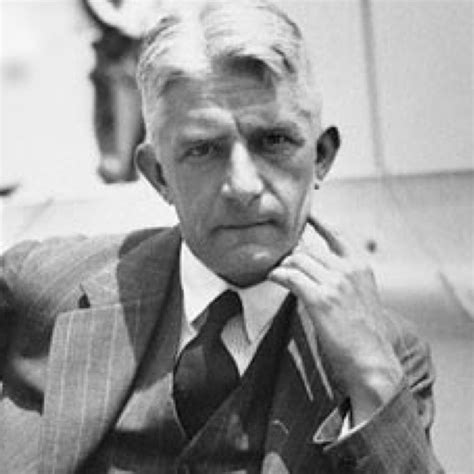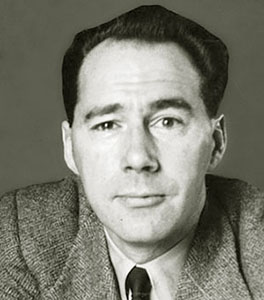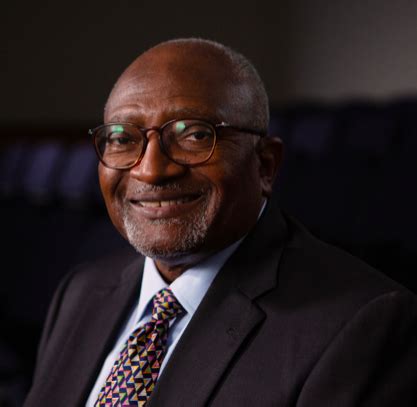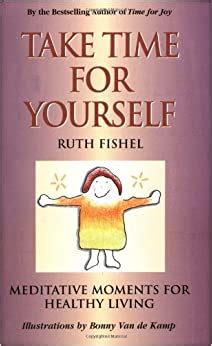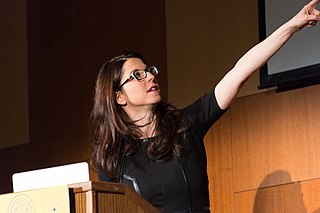Top 1200 Brain Development Quotes & Sayings - Page 15
Explore popular Brain Development quotes.
Last updated on October 31, 2024.
To me the sole hope of human salvation lies in teaching Man to regard himself as an experiment in the realization of God, to regard his hands as God's hand, his brain as God's brain, his purpose as God's purpose. He must regard God as a helpless Longing, which longed him into existence by its desperate need for an executive organ.
I suppose there was never yet a woman who had not somewhere set up on a pedestal in her brain an ideal of manhood. ... He never is finished till the brain of his creator ceases to work, till she has added her last touch to him, and has laid down the burden of life and gone elsewhere, perhaps to some happy land where ideals are more frequently realised than ever happens here.
Men ought to know that from the brain and from the brain only arise our pleasures, joys, laughter, and jests as well as our sorrows, pains, griefs and tears. ... It is the same thing which makes us mad or delirious, inspires us with dread and fear, whether by night or by day, brings us sleeplessness, inopportune mistakes, aimless anxieties, absent-mindedness and acts that are contrary to habit.
It is only the Sahasrara has to grow, not the Spirit. The more sensitive the Sahasrara is, the more it receives the spiritual qualities of the Spirit. Actually the peace is felt in the Sahasrara. The bliss is also felt in the Sahasrara because that is the brain and the brain is the epitome of our nervous system, central nervous system, of consciousness itself.
The idea of suicide, understandable as it is, does not seem commendable to me. We live in order to gain the greatest possible amount of spiritual development and self-awareness. As long as life is possible, even if only in a minimal degree, you should hang onto it, in order to scoop it up for the purpose of conscious development. To interrupt life before its time is to bring to a standstill an experiment which we have not set up. We have found ourselves in the midst of it and must carry it through to the end.
I'm definitely a night owl. I get going about the time my wife crashes and goes to bed. And in some sense, I've had to learn to be more of a cat napper in recent years because Perl development, Perl design and development, has become a worldwide phenomenon - not just mailing lists, but RSC channels, Twitter even. This all happens 24 hours a day. And people come up with questions at any time of the day or night.
That's what I hate about the war on drugs. All day long we see those commercials: "Here's your brain, here's your brain on drugs", "Just Say No", "Why do you think they call it dope?" … And then the next commercial is [singing] "This Bud's for yooouuuu." C'mon, everybody, let's be hypocritical bastards. It's okay to drink your drug. We meant those other drugs. Those untaxed drugs. Those are the ones that are bad for you.
The analogy between the mind and a computer fails for many reasons. The brain is constructed by principles that assure diversity and degeneracy. Unlike a computer, it has no replicative memory. It is historical and value driven. It forms categories by internal criteria and by constraints acting at many scales, not by means of a syntactically constructed program. The world with which the brain interacts is not unequivocally made up of classical categories.
Interestingly, the British government announced a few weeks ago that they were going to introduce 500 educational targets for preschool children. And teachers complained that “when are the children going to have time to play?” Well, they’re not supposed to play, because play is a right-brain, ad-lib, creative pursuit. The idiot politicians who are introducing it don’t understand this, but the shadow-people from which it is generated certainly do. They want to stimulate the left brain as early as possible.
Think about the way you go surfing on the Internet - you go from one thing to another. You can't really concentrate. I can't sit and read 10 pages on my computer. You'll read and then all of a sudden part of your brain is like, "What about that? ...You're not reading the whole book. You're reading fragments. Even though I think it's bad, I think it's interesting too, because that's the way my brain works.
Just as important as getting enough sleep is thinking about sleep in the right way. Stop thinking of sleep and naps as “downtime” or as a “waste of time.” Think of them as opportunities for memory consolidation and enhancing the brain circuits that help skill learning. Nor should you feel guilty about sleep. It's just as crucial a part of successful brain work as the actual task itself.
Whenever asana is done mechanically from the front brain, the action is felt only on the peripheral body, and there is no inner sensation, there is no luminous inner light. If the asana is done with continual reference to the back of the brain, there is a reaction to each action, and there is sensitivity. Then life is not only dynamic, but it is also electrified with life force.
Insomnia is a variant of Tourette's--the waking brain races, sampling the world after the world has turned away, touching it everywhere, refusing to settle, to join the collective nod. The insomniac brain is a sort of conspiracy theorist as well, believing too much in its own paranoiac importance--as though if it were to blink, then doze, the world might be overrun by some encroaching calamity, which its obsessive musings are somehow fending off.
Of course genes can’t pull the levers of our behavior directly. But they affect the wiring and workings of the brain, and the brain is the seat of our drives, temperaments and patterns of thought. Each of us is dealt a unique hand of tastes and aptitudes, like curiosity, ambition, empathy, a thirst for novelty or for security, a comfort level with the social or the mechanical or the abstract. Some opportunities we come across click with our constitutions and set us along a path in life.
You should climb around inside my brain, Dan. It's like this dark room surrounded by quicksand." "I know what you mean," her brother said quietly. "I hate being in my brain sometimes. I have to get out." "What do you do?" Amy asked. Dan shrugged "I go to other places. My toes. My shoulders. But mostly here." He tapped his chest and immediately reddened. "I know. It's stupid." "Not really," Amy said. "I wish I could do that, too.
As a woman, I know you're young but you gotta hear it now,the most valuable part about you is your brain. Get an education,don't let anybody tell you that your body or the size that you wear or any of that bullshit matters because it doesn't. Your brain matters, so be the smart girl in the room because to be funny you have to be smart, because you have to get the joke
The right kind of practice is not a matter of hours. Practice should represent the utmost concentration of brain. It is better to play with concentration for two hours than to practice eight without. I should say that four hours would be a good maximum practice time-I never ask more of my pupils-and that during each minute of the time the brain be as active as the fingers.
No Senses stronger than his brain can bear. Why has not Man a microscopic eye? For this plain reason, Man is not a Fly: What the advantage, if his finer eyes Study a Mite, not comprehend the Skies?... Or quick Effluvia darting thro' his brain, Die of a Rose, in Aromatic pain? If Nature thunder'd in his opening ears, And stunn'd him with the music of the Spheres... Who finds not Providence all-good and wise, Alike in what it gives, and what denies?
Neural science, which is the study of the brain, tells us that we have up to one billion brain cells with thousands of branches that communicate with each other much like a complex highway system. The more we attend to something, or the more we engage in certain behaviors, the more those particular cells communicate and the pathways between them deepen. This is how our values, our beliefs, and our motivations are actually formed.
The brain cannot multitask. Multitasking, when it comes to paying attention, is a myth. The brain naturally focuses on concepts sequentially, one at a time…To put it bluntly, research shows that we can’t multitask. We are biologically incapable of processing information-rich inputs simultaneously…Studies show that a person who is interrupted takes 50 percent longer to accomplish a task. Not only that, he or she makes up to 50 percent more errors.
When I first started out in my career, I'd been a lit major in college so I didn't have a lot of choices. The traditional options were management consultant or investment banking, and I hadn't even taken an economics class so those were pretty much out. I didn't want to go into academia. For me, research and instinct were my unique tools that seemed to work best on a marketing and merchandizing path. It's kind of right-brain and left-brain.
Have I ever told you how sexy your brain is?" "Finally! A man who wants me for my brain." "I want all of you. Each individual part and the sum of them all. I want you for everything you are and everything you will ever be. I will never have enough of you, because there's no such thing." He stared right into my eyes, and I couldn't have looked away if I'd wanted to. I was trapped, and never in my life had I been so happy to be caught. "I will never let you go again.
Motive is also important in our quest for knowledge and in the questioning that accompanies it. In commenting on our duty to educate for eternity, Eugene England writes: Teaching or learning - with the Spirit of God simply means (though it is not simple) that we are doing so with an eye single to eternal, not worldly, values, with an eye single to lasting development of the mind and spirit and to useful service to others, especially to aid in their lasting development of mind and spirit.
What I did not know yet about hunger, but would find out over the next twenty-one years, was that brilliant theorists of economics do not find it worthwhile to spend time discussing issues of poverty and hunger. They believe that these will be resolved when general economic prosperity increases. These economists spend all their talents detailing the process of development and prosperity, but rarely reflect on the origin and development of poverty and hunger. A a result, poverty continues.
The strengths landscape architecture draws from its garden design heritage include: the Vitruvian design tradition of balancing utility, firmness and beauty; use of the word 'landscape' to mean 'a good place' - as the objective of the design process; a comprehensive approach to open space planning involving city parks, greenways and nature outside towns; a planning theory about the contextualisation of development projects; the principle that development plans should be adapted to their landscape context.
If there is one fact we really can prove, from the history that we really do know, it is that despotism can be a development, often a late development and very often indeed the end of societies that have been highly democratic. A despotism may almost be defined as a tired democracy. As fatigue falls on a community, the citizens are less inclined for that eternal vigilance which has truly been called the price of liberty; and they prefer to arm only one single sentinel to watch the city while they sleep.
When I read these books, I no longer felt like I was confined to a very tiny world. I no longer felt housebound and bedbound. Really, I told myself, I was just brainbound. And this was not such a sorry state of affairs. My brain, with a little help from other people's brains, could take me to some pretty interesting places, and create all kinds of wonderful things. Despite its faults, my brain, I decided, was not the worst place in the world to be.
If we wish to imitate the physical sciences, we must not imitate them in their contemporary, most developed form; we must imitate them in their historical youth, when their state of development was comparable to our own at the present time. Otherwise we should behave like boys who try to copy the imposing manners of full-grown men without understanding their raison d' être, also without seeing that in development one cannot jump over intermediate and preliminary phases.
Normal children of both sexes and all cultures will follow a more or less standard and universal developmental pattern and timetable, and reach approximately the same level of development at maturity. While a particular culture's need and expectations and teaching will shape the course of development and affect adult capabilities to some degree, normal individuals, whatever their native culture, if transplanted and taught, could learn to meet the normal demands of their adapted cultures.
Psychohistory, like psychoanalysis, is a science in which the researcher's feelings are as much or even more a part of his research equipment than his eyes or his hands. Weighing of complex motives can only be accomplished by identification with human actors, the usual suppression of all feeling preached and followed by most "science" simply cripples a psychohistorian as badly as it would cripple a biologist to be forbidden the use of a microscope. The emotional development of a psychohistorian is therefore as much a topic for discussion as his or her intellectual development.
I think that the artificial-intelligence people are making a lot of noise recently, claiming that artificial intelligence is making huge progress and we're going to be outstripped by the machines. But, in my view, this whole field is based on a misconception. I think the brain is analog, whereas the machines are digital. They really are different. So I think that what the machines can do, of course, is wonderful, but it's not the same as what the brain can do.
Get in the habit of writing down three things you're grateful for every day. Studies show that in a two-minute span of time, done over 21 days in a row, you can actually rewire your brain. Your brain starts to retain a pattern of scanning the world for the positive versus the negative. Seeing things in a frame of positivity and gratitude is a muscle. You can strengthen this muscle through practice.
When a male vole repeatedly mates with a female, a hormone called vasopressin is released in his brain. The vasopressin binds to receptors in a part of the brain called the nucleus accumbens, and the binding mediates a pleasurable feeling that becomes associated with that female. This locks in the monogamy, which is known as pair-bonding. If you block this hormone, the pair-bonding goes away.
The government must nurture an eco-system where the economy is primed for growth; and growth promotes all-rounddevelopment. Where development is employment-generating ; and employment is enabled by skills. Where skills are synced with production; and production is benchmarked to quality. Where quality meets global standards; and meeting global standards drives prosperity. Most importantly, this prosperity is for the welfare of all. That is my concept ofeconomic good governance and all round development.
You know, development sometimes is viewed as a project in which you give people things and nothing much happens, which is perfectly valid, but if you just focus on that, then you'd also have to say that venture capital is pretty stupid, too. Its hit rate is pathetic. But occasionally, you get successes, you fund a Google or something, and suddenly venture capital is vaunted as the most amazing field of all time. Our hit rate in development is better than theirs, but we should strive to make it better.
I don't think it had ever occurred to me that man's supremacy is not primarily due to his brain, as most of the books would have one think. It is due to the brain's capacity to make use of the information conveyed to it by a narrow band of visible light rays. His civilization, all that he had achieved or might achieve, hung upon his ability to perceive that range of vibrations from red to violet. Without that, he was lost.
The great age of the earth will appear greater to man when he understands the origin of living organisms and the reasons for the gradual development and improvement of their organization. This antiquity will appear even greater when he realizes the length of time and the particular conditions which were necessary to bring all the living species into existence. This is particularly true since man is the latest result and present climax of this development, the ultimate limit of which, if it is ever reached, cannot be known.
When I look at the human brain I'm still in awe of it. Every single time you lift off the bone and open the durra and there it is - the human brain, the thing that gives a person a personality, that distinguishes each one of us, that there could be more than 6 billion of us here on this planet with brains that look the same, but each one being distinctly different because of what is going on in that thing. I'll never get over my awe of that.
Why did the consensus of Christian churches not only accept these astonishing views but establish them as the only true form of Christian doctrine? . . . these religious debates - questions of the nature of God, or of Christ - simultaneously bear social and political implications that are crucial to the development of Christianity as an institutional religion. In simplest terms, ideas which bear implications contrary to that development come to be labeled as 'heresy'; ideas which implicitly support it become 'orthodox.'
The culture and educational system of the contemporary West are based almost exclusively upon the training of the reasoning brain and, to a lesser degree, of the aesthetic emotions. Most of us have forgotten that we are not only brain and will, senses and feelings; we are also spirit. Modern man has for the most part lost touch with the truest and highest aspect of himself; and the result of this inward alienation can be seen all too plainly in his restlessness, his lack of identity and his loss of hope.
Ew. Someone put the dog out, "Rosalie murmured wrinkling her nose. Have you herd this one, Psycho? how do a blond's brain cells die?" She didn't say anything. Well?" I asked."Do you know the punch line or not?" She looked pointedly at the TV and ignored me. Has she heard it?" I asked Edward. No." He answered. Awesome. So you'll enjoy this, bloodsucker--a blond's brain cells die alone.
I think the greatest work in social psychology from the 1950s and '60s is enormously important. I wish every high school kid could take a course in social psychology. I think we're making enormous strides in understanding the brain. These aren't yet giving us great insights, but I feel like we're on the verge of it. In five or ten years this basically searching the brain is really going to change things.
Changes in society are due chiefly to the development of the internal contradictions in society, that is, the contradiction between the productive forces and the relations of production, the contradiction between classes and the contradiction between the old and the new; it is the development of these contradictions that pushes society forward and gives the impetu6 for the suppression of the old society by the new.
If the brain expects that a treatment will work, it sends healing chemicals into the bloodstream, which facilitates that. That's why the placebo effect is so powerful for every type of healing. And the opposite is equally true and equally powerful: When the brain expects that a therapy will not work, it doesn't. It's called the "nocebo" effect.
On a personal level, I do a "brain dump" where everything that's in my head that needs doing gets written down. It gives your brain a rest. And then I give myself permission not to do everything on that list. I'm much more clear about my priorities: What are those moments of connection that are most important to me? Today is a busy workday but it's also a snow day, so I'm going cross-country skiing with my husband. And then I'll come back and finish my work.
In the field of economics we maintain to this day some of the most primitive ideas, some of the most radically false ideas, some of the most absurd ideas a brain can hold. ... but all this give no uneasiness to the average brain. That long-suffering organ has been trained for more thousands of years than history can uncover to hold in unquestioning patience great blocks of irrelevant idiocy and large active lies.
Given her deafness, the auditory part of the brain, deprived of its usual input, had started to generate a spontaneous activity of its own, and this took the form of musical hallucinations, mostly musical memories from her earlier life. The brain needed to stay incessantly active, and if it was not getting its usual stimulation..., it would create its own stimulation in the form of hallucinations.
I view all art as an effort to translate brain concepts into a work. These brain concepts are synthetic ones - the result of many experiences. But a single work of art, or even a series of works, more often than not cannot translate these synthetic concepts adequately. Yves Saint Laurent once said that he suffered greatly when creating. He is not alone in that. Most artists do the same and say as much.
There is a built-in mechanism by which we respond fairly strongly and fairly negatively to somebody who is being negative or to somebody who is simply disagreeing with us, in which case it's a very unhappy position for our brain to be in. Our brain does not want us to be wrong. Because that has very dire consequences in terms of our overall survival.
The structure of the human brain is enormously complex. It contains about 10 billion nerve cells (neurons), which are interlinked in a vast network through 1,000 billion junctions (synapses). The whole brain can be divided into subsections, or sub-networks, which communicate with each other in a network fashion. All this results in intricate patterns of intertwined webs, networks of nesting within larger networks.
If we take two people who have exactly the same sort of lesion or area of damage in the brain and then we do cognitive tests on them, you know, one person might have a very severe deficit in a certain area of thinking and another person might not with the same exact lesion. So there is a lot of differences and you can't just look at one brain and understand the whole picture.
We consciously use only a small portion of our brain, but we're constantly performing complex operations in other areas even though we're unaware of it. Savants gain access to unconscious areas when the brain's bossy left hemisphere is muted. The left is in charge of much of our organized thought and decision-making and tends to suppress the right side, which generally rules creative activities.
When you sleep your eyes move left and right and physical movement takes trauma and moves it from your frontal lobe to the back of your brain or to another part of the brain where you can store it that memory but when you think about those things that happened, you don't associate the feeling that normally comes with it. So the problem is if you have something traumatic happen and you are not getting a good amount of rest, it will stay in your frontal lobe.
A fixed habit is supported by old, well-worn pathways in the brain. When you make conscious choices to change a habit, you create new pathways. At the same time, you strengthen the decision-making function of the cerebral cortex while diminishing the grip of the lower, instinctual brain. So without judging your habit, whether it feels like a good one or a bad one, take time to break the routine, automatic response that habit imposes.










